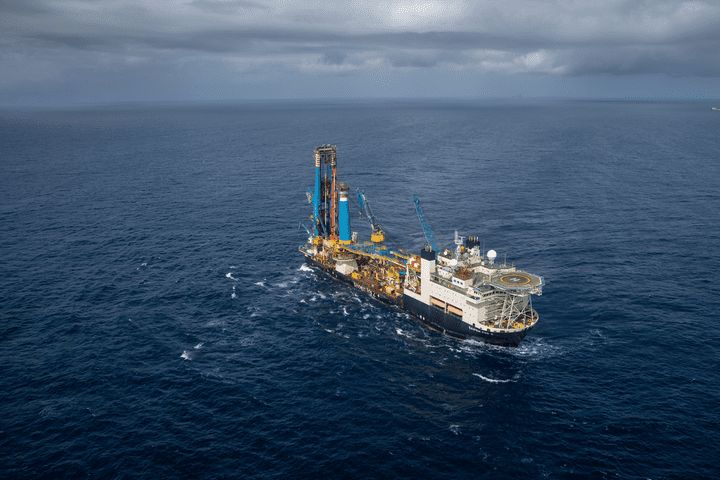Italian multinational oilfield services company, Saipem, recently launched its new sustainable technology for subsea pipelaying, touted as one that considerably reduces environmental impacts on the seabed.
The “Underwater Cold Bending” technology was unveiled during the Offshore Technology Conference (OTC) in Houston, the leading international events in the offshore energy sector.
The Underwater Cold Bending technology is a new subsea pipelaying method patented by Saipem which makes it possible to form vertical cold bends in the pipeline in a strictly controlled way and directly underwater using a specially designed remotely operated underwater bending machine.
According to Saipem, the fact that the bends are created when the pipeline is about to be positioned on the seabed means there is no interruption to regular pipelaying operations.
“This innovative technology optimises the pipelay process in correspondence with sharp slopes or escarpments,” the company explained.
“The site conditions are typically so critical as to present serious design concerns and require massive seabed preparation works with heavy environmental impacts,” Saipem said.
Saipem opens offshore construction facility in Guyana | OilNOW
Compared to the traditional approach, Saipem said the Underwater Cold Bending method represents “a safe, sustainable and economic solution” and guarantees the maximum integrity and safety of the pipeline throughout its life cycle.
The unveiling of the Underwater Cold Bending method can be seen as timely as Saipem is set to deliver a major subsea system for Guyana’s largest oil project – Yellowtail.
The contract, awarded by ExxonMobil Guyana, relates to the Engineering, Procurement, Construction, and Installation (EPCI) of the Subsea Umbilicals, Risers & Flowlines (SURF) for the oil major’s fifth Stabroek Block development.
Yellowtail is intended to be a greenfield development project encompassing subsea drilling centres, (each equipped with separate oil production, water injection and gas injection wells), linked to the ‘ONE GUYANA’ floating production, storage and offloading (FPSO) vessel.



